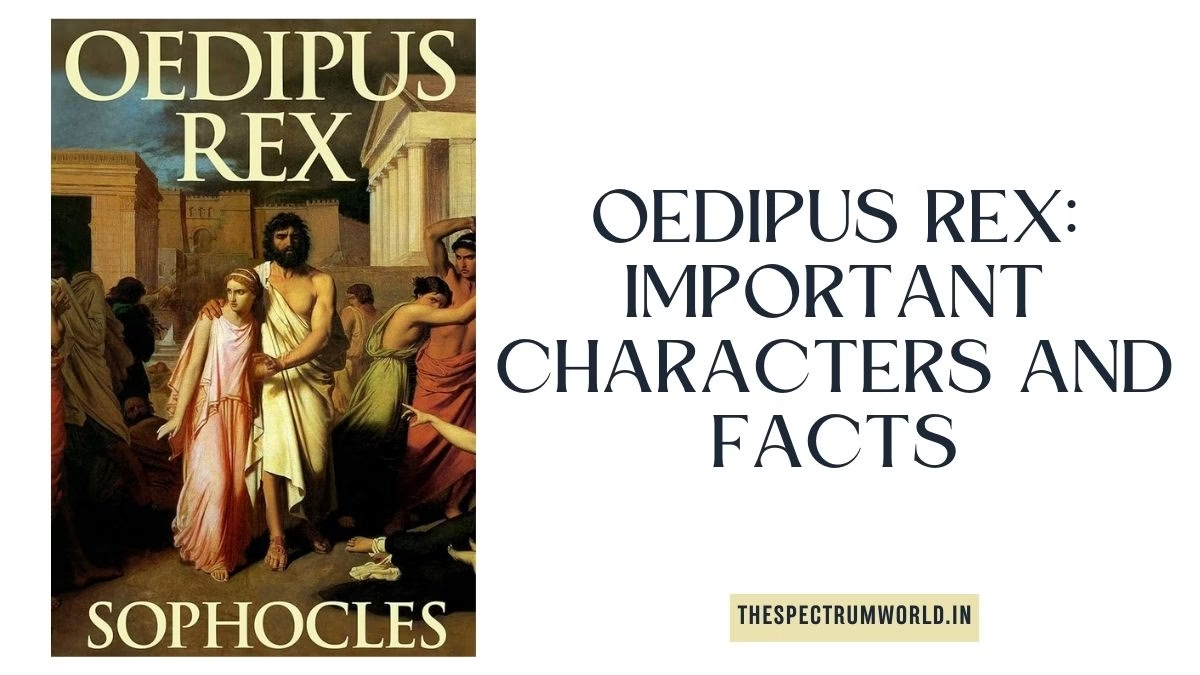Oedipus Rex: Important Characters and Facts
“Oedipus Rex,” a tragedy by Sophocles, was written around 429 BCE, during the height of Ancient Greece’s political and cultural power. This date is the play’s first performance at the Theatre of Dionysos in Athens, Greece. However, some scholars argue that the play was likely written sometime between 430 and 425 BC, coinciding with the peak of Athenian power and the rise of the Peloponnesian War.
The exact date of its writing is somewhat uncertain, but it’s believed to be one of Sophocles’ most famous works, exploring themes of fate, hubris, and the human condition. “Oedipus Rex” is widely regarded as one of the greatest plays, stories, and tragedies ever written, continuing to captivate audiences centuries after its premiere.
Table of Contents
The Tragic Tale of Oedipus Rex: A Timeless Classic
Oedipus Rex, a tragedy written by the ancient Greek playwright Sophocles, has been a cornerstone of Western literature for centuries. The play tells the story of Oedipus, a king who unknowingly kills his father and marries his mother, fulfilling a prophecy that had been foretold. This tragic tale has captivated audiences for millennia, and its themes of fate, hubris, and the human condition continue to resonate with readers today.

Characters of Oedipus Rex:
- Oedipus: The king of Thebes and tragic hero, Oedipus is a complex character who unknowingly kills his father and marries his mother. He’s intelligent and determined, but also prideful, which contributes to his downfall.
- Jocasta: The queen of Thebes, Jocasta is Oedipus’s wife and mother. She’s strong and empathetic, but ultimately succumbs to the truth about her past, leading to her tragic demise.
- Laius: The King of Thebes, killed by Oedipus, which fulfilled the prophecy.
- Creon: Oedipus’s brother-in-law, Creon, is a significant character who advises Oedipus and plays a crucial role in uncovering the truth.
- Teiresias: A blind prophet, Teiresias possesses knowledge of the prophecy but hesitates to reveal it to Oedipus, only doing so when accused of treachery.
Supporting Characters
- Antigone: Oedipus’s daughter, Antigone, appears at the end of the play, symbolizing innocence and serving as a poignant connection to Oedipus’s humanity.
- Ismene: Oedipus’s daughter, Ismene, also appears at the end, showcasing her love and devotion to her father.
- The Shepherd: A former servant of King Laius, the shepherd spared Oedipus’s life as a baby and later confirmed Oedipus’s true identity.
- The Priest: A minor character who informs Oedipus about the city’s suffering and asks for his help.
- The Corinth Shepherd: The person who gave baby Oedipus to King Polybus and Queen Merope of Corinth.

The Story of Oedipus Rex:
The play begins with the city of Thebes plagued by a terrible curse. The citizens are suffering from a devastating plague, and they turn to their king, Oedipus, for help. Oedipus sends his brother-in-law, Creon, to the Oracle of Delphi to seek a solution. Creon returns with the news that the plague will be lifted when the murderer of the former king, Laius, is found and punished.
A priest of Apollo stands before Oedipus and describes the dire situation, saying that the city is dying and that the people are suffering greatly. The priest asks Oedipus to find a solution to the problem, reminding him that he has previously saved the city from the Sphinx.
Riddle of the Sphinx:
The Riddle of the Sphinx is a famous mythological puzzle that Oedipus solved, saving the city of Thebes from the Sphinx’s terror.
“What walks on four legs in the morning,
two legs at noon,
And three legs in the evening?”
Oedipus’s Answer
Oedipus cleverly answered the riddle by saying:
“Man.”

He explained that as an infant, a person crawls on all fours (four legs) in the morning of their life. As an adult, they walk on two legs at noon (the prime of life). And in old age, they may use a cane for support, effectively having three legs in the evening of their life.
The Riddle of the Sphinx is significant not only because it showcases Oedipus’s intelligence and problem-solving skills but also because it symbolizes the human journey through life. The riddle has become a timeless and universal puzzle that continues to fascinate people to this day.
In the context of the play “Oedipus Rex,” solving the riddle is a testament to Oedipus’s abilities and earns him the admiration of the people of Thebes. However, it also sets the stage for the tragic events that unfold as Oedipus discovers the truth about his past and his fate.
Oedipus responds by telling the priest that he has already sent his brother-in-law, Creon, to the Oracle of Delphi to seek advice from the god Apollo. Creon soon returns with the news that the plague will be lifted when the murderer of the former king, Laius, is found and punished.
The opening scene sets the tone for the rest of the play, introducing the themes of suffering, fate, and the search for truth. It also establishes Oedipus as a confident and determined leader who is willing to take action to save his city.
The opening lines of the play are:
“Ah, pitiful children, young and frail,
known to me, I know your errand here.
I know that you are sick, and yet,
Sick as you are, not one of you is sick
as I.” (lines 1-5, translated by Robert Fagles)

These lines introduce the priest and the suffering people of Thebes and set the stage for the tragic events that will unfold.
Oedipus vows to find the killer, unaware that he is the culprit. As the story unfolds, Oedipus’s past is revealed, and it becomes clear that he has fulfilled the prophecy that had been foretold: he has killed his father and married his mother, Jocasta.
The Tragic Flaw of Oedipus:
Oedipus’s downfall is a result of his tragic flaw: his hubris. Despite the warnings from the blind prophet Tiresias, Oedipus refuses to listen and instead continues to pursue his course of action. His arrogance and pride ultimately led to his downfall, as he discovered the truth about his past and his relationship to Jocasta.
Themes of Oedipus Rex:
The play explores several themes that are still relevant today, including:
- Fate vs. Free Will: The play raises questions about the role of fate in human life. Is Oedipus’s downfall a result of his actions, or was it predetermined by the gods?
- Hubris and Pride: Oedipus’s tragic flaw is his hubris, which ultimately leads to his downfall. The play highlights the dangers of excessive pride and arrogance.
- The Human Condition: Oedipus Rex explores the human condition, revealing the inherent flaws and weaknesses in human nature.
Conclusion:
Oedipus Rex is a timeless classic that continues to captivate audiences with its tragic tale of fate, hubris, and the human condition. The play’s themes and characters remain relevant today, and its influence can be seen in literature and art throughout history. As a work of literature, Oedipus Rex is a masterclass in tragic storytelling, and its impact will continue to be felt for generations to come.
Read more: F. R. Leavis and His Important Works






